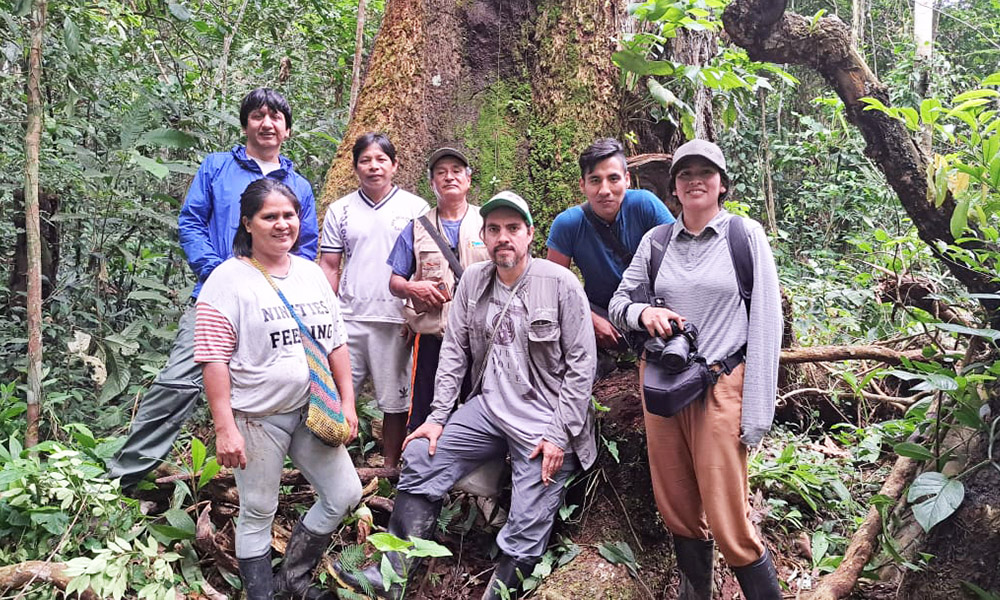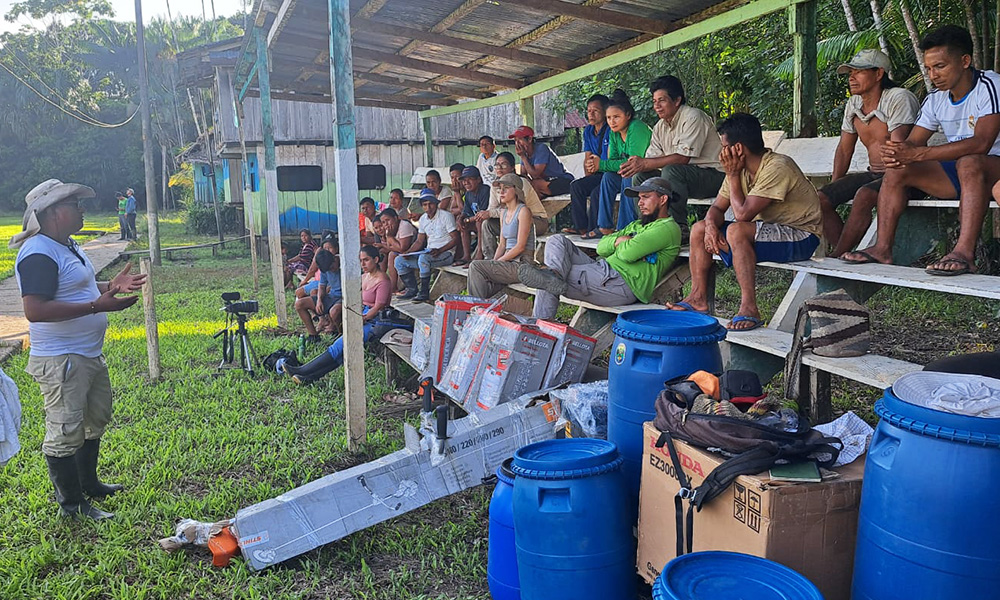More than 3.5 million people currently live in the Peruvian Amazon, including city dwellers, settlers, forest users and indigenous peoples, some of whom are in isolation and initial contact.
Threats such as illegal mining and other illicit activities, haphazard planning and the weak coordination between the State and civil society organizations and native communities to address environmental and human health impacts and support productive alternatives, demand that local initiatives be strengthened in order to maintain a sustainable production model.
Faced with these challenges, FCDS Peru and Climate and Land Use Alliance (CLUA) implemented the project "Strengthening local governance for decision-making in Madre de Dios and Loreto" between 2022 and 2024. This provided financial and technical support to improve the family or community economy, so that local initiatives such as indigenous communities, peasant communities, mining and forestry concessionaires can make better decisions in a context where illegality is gaining ground.
are being protected thanks to the joint efforts of native communities, farmers and forest concessionaires.
The Peruvian Amazon fulfills crucial functions for humanity, such as regulating the local and global climate. It also provides fundamental resources for the population.
Objectives
This project had two objectives:
Strengthen local governance for decision-making in Madre de Dios and Loreto, as a strategy to influence decisions that impact territories with high levels of socio-environmental conflict in the Peruvian Amazon.
- Through direct work in the territory with local initiatives such as indigenous communities, peasant communities, mining and forestry concessionaires, farmers, fishermen and entrepreneurs in these regions. To this end, activities that generate economic, social and environmental benefits were promoted.
- These actions not only contributed to the quality of life of the population, but also to the maintenance and/or recovery of connectivity between large natural protected areas (NPAs), regional conservation areas (RCAs) or conservation corridors.
Strengthen the Regional Alliance for the Reduction of the Impacts of Gold Mining in Colombia, Peru and Brazil, with emphasis on Loreto.
- To this end, we consolidated the articulated work with Alliance partners, local organizations and regional and national governments, while facilitating spaces for dialogue to discuss, advance in the implementation and generate multi-stakeholder work agreements to strengthen governance and management of the impacts generated by mining.
Between 2022 and 2024 we worked with nine local initiatives in two Amazon regions: six in Madre de Dios and three in Loreto.
Main actions carried out
We worked hand in hand with nine local initiatives: six in Madre de Dios and three in Loreto. These are native and peasant communities, forestry and mining concessions located in territories impacted by illegal mining, land trafficking and illicit crops, who promoted sustainable productive activities to generate economic, social and environmental benefits for more than 250 families, mostly indigenous peoples (Boras, Huitotos, Yaguas, Ocainas, Harakbut and Yine).

In Madre de Dios
The work was carried out with local initiatives that were part of the Functional Connectivity between Natural Protected Areas (NPA) project, sites that were part of the biodiversity sampling and that still help maintain connectivity between these areas within a mosaic of forest loss between Delta 1, Huepetuhe and La Pampa.
These initiatives include the Executor of the Administration Contract (ECA) of the Amarakaeri Communal Reserve, forestry concessions, private land, and a mining concession.

In Loreto
The work was carried out with a watershed vision and together with strategic allies that are already working in the territory. Work was carried out with the Federation of Native Communities of Ampiyacu (Fecona) and with two associations of artisanal fishermen.
The proposals implemented were co-created with each of the initiatives. They identified the problem or need to be covered, proposed actions and activities to strengthen management, surveillance, control and/or the promotion of sustainable economic activities, which are important to counteract the growth of illegal activities in their territories.





